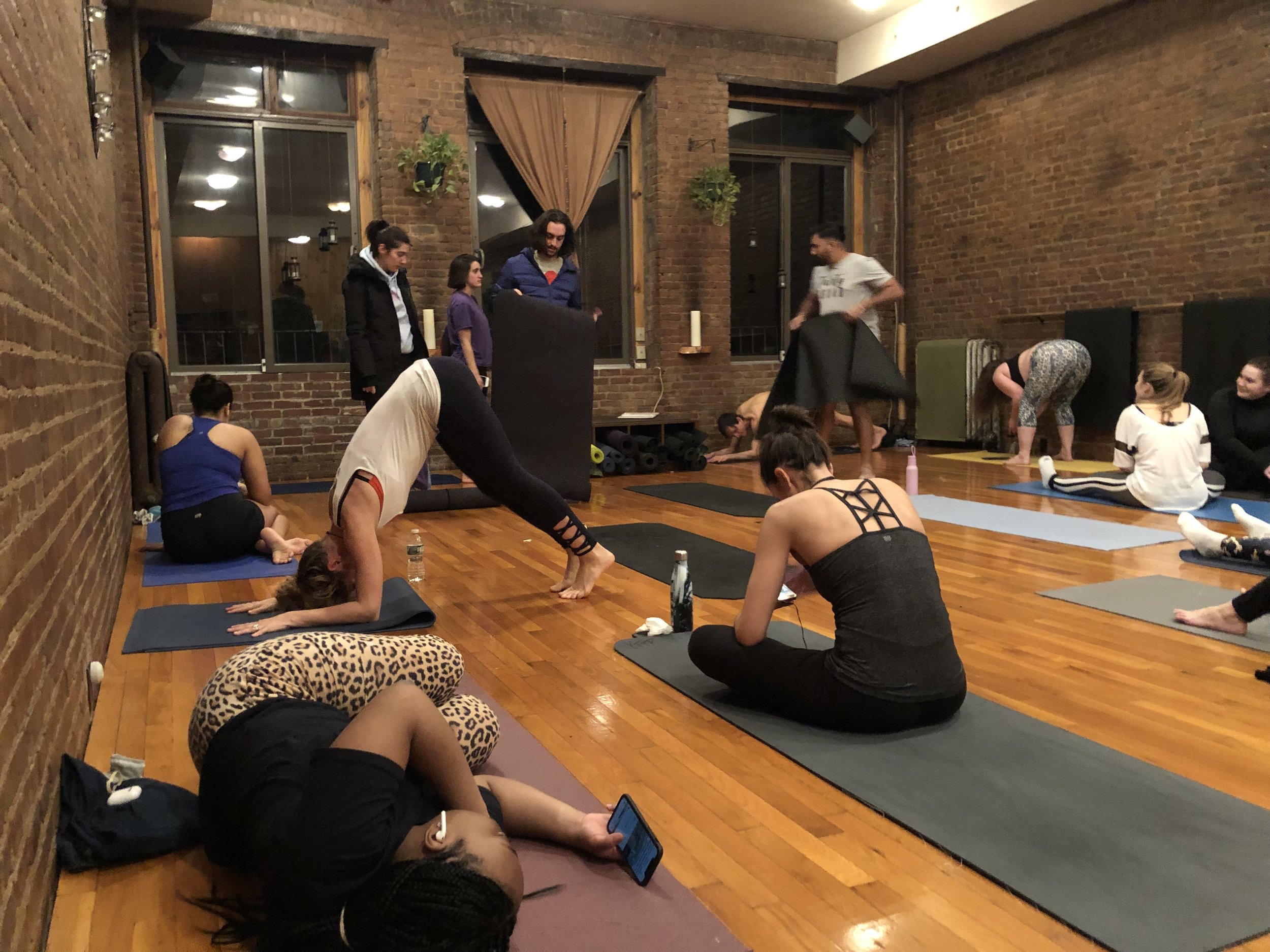Is Yoga 'Demonic' and Anti-Christian?
People gather at Yoga to the People, where students at Kings regularly workout. || Photo credit to Sydney Powell
Despite calls by some pastors who have labeled yoga “demonic,” many Christian students at King’s do it regularly as part of their regular workout regimen – shunning its pagan heritage and instead focusing on the health benefits it offers.
“I don’t think there’s any conflict with Christianity and yoga-meditation because it is an advocate for rest, reflection, and mindfulness,” said Taylor Chick, a freshman and practicing Christian.
Although the yoga people do at the local gym no longer mimics the type that originated in India, pastors have been wary of it.
“Yoga is antithetical to a Christian understanding of God and the way he works in the world,” John Piper, a Christian theologian, said in a Faith Wire article.
Piper isn’t alone. As yoga becomes increasingly popular across the United States, many Christian denominations are divided on whether yoga is a sinful practice.
“Meditation in yoga brings a person to a consciousness of nothing around them. It lowers the mind gate that God has established for spiritual preservation spiritually speaking for a person,” said John Lindell, a megachurch pastor in Missouri during a sermon this past November.
Lindell also called yoga “demonic” due to its pagan roots. Indeed, yoga is an ancient practice dating back over 5,000 years and was developed by the Sarasvati in northern India. In 1893, a Hindu religious teacher introduced yoga to Americans. And yoga is also growing in popularity. Health News reported that over 14% of Americans currently practice yoga – a 50% increase from 2012.
“Yoga took root in America and took on its own form, now resembling more of a workout than traditional Indian yoga,” said Teryl Mackey, a yoga instructor.
Chick said she regularly attends yoga classes in the city and is also an active member in Christ Community Church. She said she does not view yoga as a heretical practice – but instead as a quiet time to reflect on herself and God.
“Creating space in the day to be grounded in your breath helps create space, at least for me, to remember who gave it to me,” she said.
Lauren Davis stretches at a Yoga to the People class. || Photo credit to Sydney Powell
According to the Yoga Journal, alongside the space the activity provides for breathing and reflection, it also has many physical benefits. Increased flexibility, core strength, bone health, and reduced stress are a few of the tangible benefits yoga offers.
Lauren Davis, a junior, said she attends Yoga to The People, a growing, donation-based studio in the city a few times a week as a way to exercise and regain flexibility.
“I like to focus on stretching and strength in a way that benefits both mutually. I grew up dancing and I’ve always wanted to maintain my flex and core with dance and yoga is a great way to continue that in college,” she said.
Paris Welker-Widell, a junior, is both a Christian and yoga advocate. She doesn't view yoga as any more of a pagan practice than Christmas or Easter. While some pastors remain divided on this issue, Welker-Widell said she doesn’t understand why.
“The church has adopted many pagan practices such as Christmas trees, Easter egg hunts, all of which have pagan origins and are not inherently bad. So, yes, yoga comes from pagan origins, but I'm not worshiping anything when I practice,” she said. “I am simply stretching, breathing and strengthening my body. That doesn't sound evil, sinful or demonic to me.”


